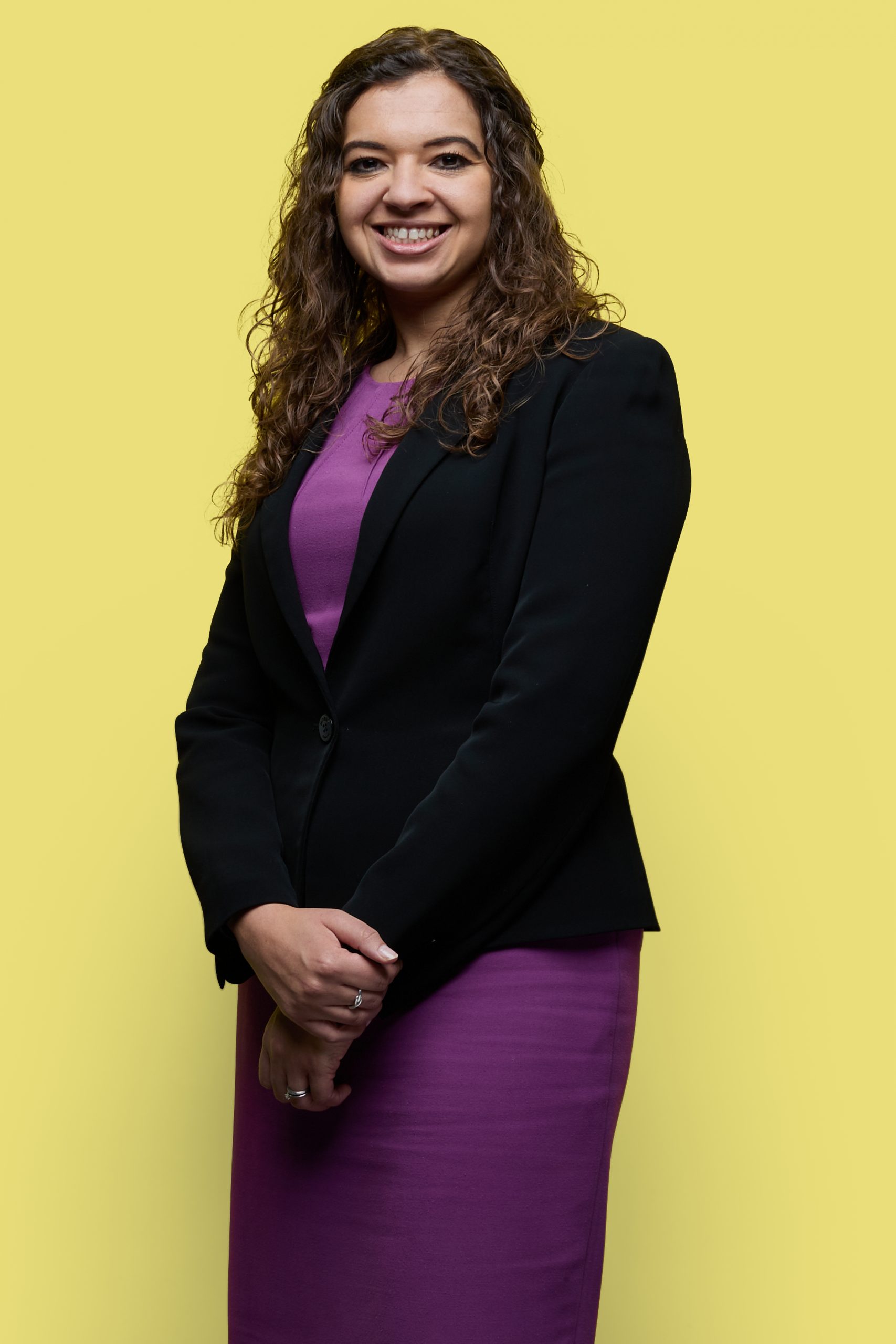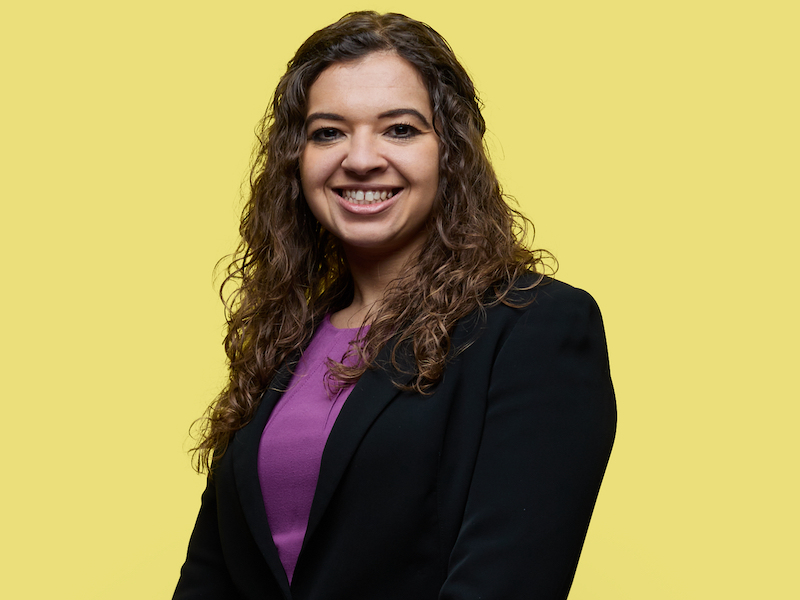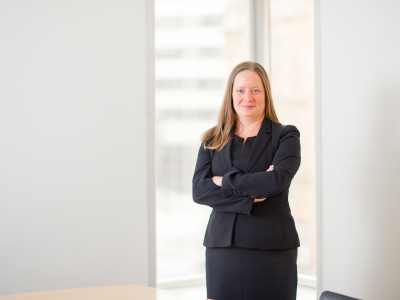Carly Thorpe, Partner in the Construction Team at Walker Morris, discusses the challenges she’s faced navigating her career in law, which made her passionate about improving social mobility and diversity in the legal sector.
I grew up on a council estate in Huddersfield with my grandparents. When I was eight, my father tried to get custody of me and I ended up spending quite a lot of time with solicitors as a result. These people seemed so intelligent and glamorous and their jobs seemed so interesting. A dream started to form – from that time on I knew I wanted to become a lawyer.
I was the first person in my family to go on to higher education, so I didn’t have any family or contacts to guide me with university choices or plans for my future. So when studying A-Levels at Sixth Form College I relied heavily on the advice of my tutors and guidance counsellor. I remember being told that I wasn’t “the right fit” or “smart enough” to be a lawyer (despite achieving straight As). I think my tutors and guidance counsellor believed they were genuinely helping me by discouraging me from careers or institutions they didn’t think I’d fit into.
It’s well documented that many in the legal profession are from wealthy backgrounds, have family connections to firms and have been privately educated. My counsellors probably thought it was kinder to persuade me to take a different, easier career path, rather than one where my skin colour, working class background and the fact I went to a state school could be such an obvious disadvantage.
I ignored their advice and studied Law with Spanish at the University of Sheffield. Whilst at university I really struggled to gain work experience within law firms and secure a training contract. I always got a “no” or my efforts were completely ignored, but I noticed others around me didn’t have the same issues, and I found out they had secured opportunities through family or friends. I did eventually manage to get a job as an admin assistant at a small high street firm but it meant I was working a lot over the summer and holding down two jobs in order to gain some experience and pay my way.
I remember when trying to secure a training contract, I filled out lots of forms and answered questions well – I would often get through to the interview stage – then nothing. I always felt like the other people applying were very different to me, more confident and seemed to naturally know what they were doing during the interview process – even things which now seem simple like shaking someone’s hand were alien to me. For many of the interviews I didn’t know how to present myself and I also didn’t have anyone to ask or any experience of being in a corporate environment. I did eventually manage to secure a training contact after attending an open day at a well-known law firm and doing well at the interview.
When I arrived at law school after university I thought my fellow students would be more diverse. In reality, most of my peers were white and privately educated, and they had an understanding of what was expected of them – how to behave and look – that I didn’t – which knocked my confidence a lot. That feeling continued throughout my training contract. People tried to help with suggestions like “wear a suit at all times so you’re taken seriously” even though others didn’t have to. Once I was told by a partner that their clients were really traditional, so I should do something with my hair as it was too distracting.
I felt like I couldn’t be myself then, and it took a few years to realise that I didn’t need to look a certain way to be successful or good at my job.
There was a recurring theme for me throughout my education and during my training, of feeling always on the back foot, having to try harder than everyone else and not fitting in. I know many people who are from ethnic minorities or have a northern or working class background experience the same challenges, still.
It can be incredibly difficult to pursue a career within the legal industry, especially when you don’t have family connections to help secure training contracts or don’t have a private education. To me, everyone just seemed further ahead. I think it is important that anyone wanting to enter the industry do their research but there are some things that you can’t learn unless you are told about it by other lawyers, or learn it through experience.
The legal industry is definitely improving when it comes to recognising the value of building a more diverse workforce with people from various backgrounds, different opinions, perspectives and experience, and I hope that going forwards others won’t experience the same challenges as me. There is more support for junior lawyers and more ways to enter the profession than ever before. At Walker Morris, no one cares which university you attended and as a team we are aware that it may be harder for some to secure training contacts. We are making commitments to ensure that we help improve social mobility and diversity in the industry, rather than just talking about it.
We recently commissioned a survey of 14-18 year olds to understand what they perceive to be the biggest barriers to a career in law, revealing that four in ten students are advised against pursuing their dream job in the industry (something that aligns with my own experience). Highlighting that there is still more to be done, this data will act as a guide to how we tackle these issues going forward and provide useful insights for the sector as a whole.
We’re also implementing new recruitment processes and recently added RARE to our tech stack – a contextual recruitment system which identifies the most disadvantaged candidates and those who have outperformed their schools by the greatest amounts. This platform aims to level the playing field for young people looking to pursue a career in the legal industry, and by utilising the system in our recruitment process we aim to increase the amount of interviews and trainee appointments of those from underrepresented backgrounds.
More inclusive legal teams offer a wider array of ideas, better solutions and a diverse pool of thought. Ultimately, those firms taking a bold approach to ensuring that their recruits include people from all walks of life will produce better results for their clients.
About the author
 Carly is a specialist in construction and engineering law, known for advising clients on managing risks before, during and after construction projects, and in avoiding, resolving, and minimising the impact of construction related disputes.
Carly is a specialist in construction and engineering law, known for advising clients on managing risks before, during and after construction projects, and in avoiding, resolving, and minimising the impact of construction related disputes.
Walker Morris LLP is a commercial law firm that provides tailored, long term, strategic advice to multinational companies and public and privately listed companies around the world. Our diverse collection of lawyers and professionals carry an entrepreneurial spirit and work incredibly hard to help clients forge their own paths and achieve greater success.









